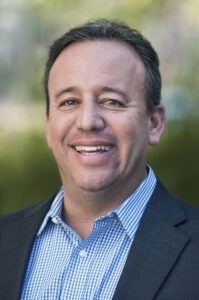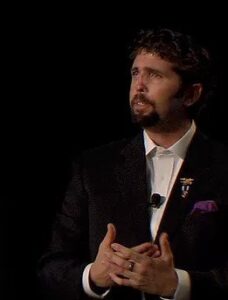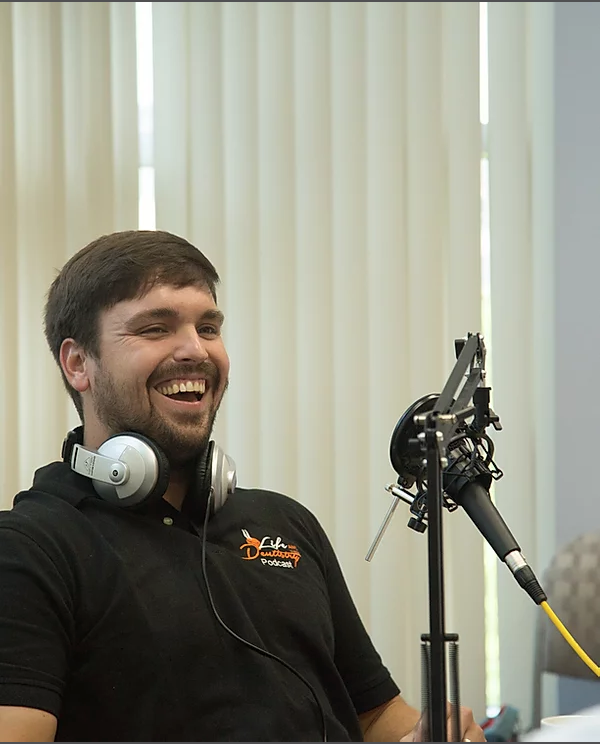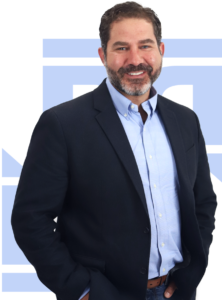by [email protected] | Sep 9, 2020 | Maverick Mind Shifts
Podcast: Play in new window | Download
 David Meltzer is the co-founder of Sports 1 Marketing, as well as the former CEO of Leigh Steinberg Sports Entertainment Agency. He also wrote a book and made two fortunes as an attorney and a salesman. His life mission is to empower over one billion people to be happy, which has led him on an incredible journey to provide one thing of value in this world and to create a business that is driven by heart and soul.
David Meltzer is the co-founder of Sports 1 Marketing, as well as the former CEO of Leigh Steinberg Sports Entertainment Agency. He also wrote a book and made two fortunes as an attorney and a salesman. His life mission is to empower over one billion people to be happy, which has led him on an incredible journey to provide one thing of value in this world and to create a business that is driven by heart and soul.
Listen in to find out the four pillars of truth and how they can change your life. You’ll learn what David believes are the key components of true happiness, what most people are focusing on that is only holding them back, and his advice is for dentists facing uncertainty and anyone who is feeling they are just waiting for happiness to arrive.
Tune in to more Mind Shift Podcast Episodes
Key Quotes:
- “Those people that can enjoy the consistent, persistent pursuit of their potential, find the light, the love, and the lessons, have a grateful attitude are going to get more out of what they do.”
- “People have a very hard time distinguishing accountability from liability and responsibility, but once you do, it gives you complete control.”
- “We can control our heart set. We can control the way we feel, what we think, say, do, and believe.”
- “Let’s learn how to love what you don’t love. Let’s learn how to enjoy the grit. Let’s learn how to enjoy the hustle.”
- “Happiness is the ups and the downs of growing the business and the lessons that we learned and the people that we meet and the challenges that we have.”
- “Happiness is the greatest virus ever created. It’s shared simply by witnessing it. It strengthens you mentally, physically, emotionally, and even financially.”
Featured on the Show:


by [email protected] | Aug 12, 2020 | Wealth Wisdom
Podcast: Play in new window | Download
 Today I’m excited to sit down and chat with Reese Harper, who you may know from The Dentist Money Show. Reese has a great perspective on how to find security in the decisions you make with your money, and he joins the show to share tips for making better money decisions for your life and practice.
Today I’m excited to sit down and chat with Reese Harper, who you may know from The Dentist Money Show. Reese has a great perspective on how to find security in the decisions you make with your money, and he joins the show to share tips for making better money decisions for your life and practice.
Listen in to hear Reese’s unique and interesting explanation of the stock market, as well as how we can restructure our thinking around money in order to make better decisions. You’ll learn what to do with your cash and how to stay confident in your financial choices today and moving forward.
Be Inspired, Tune in to more Wealth Wisdom Podcast
Key Quotes:
- “During volatile and scary times, there are always people who come out of the woodwork about the end of the world happening. A lot of dentists buy into that fear.”
- “A simple way of thinking about how the stock market works is that there are millions of people around the world who are making the decision to buy the stock or keep the money in their wallet – or sell the stock or hold onto the stock. It’s millions of people agreeing on the prices.”
- “It’s not a gamble; it’s just science. The market, since 1926, has a 10% annual return that is composed of peaks and troughs that go down 45% that happen once every 7-8 years, and smaller dips at about 15%. We hadn’t had one since 2013 or even a really meaningful one since 2008.”
- “Two people with the same amount of earnings, times that by 25 years, have choices of what they want to say yes to. All of these things will either leave you with nothing in the end or with financial security and financial independence.”
- “Some of us need accountability, or we won’t have anything left.”
- “Liquidity creates presence of mind.”
- “You need to have more liquidity in a world where the government isn’t respecting the debt that citizens have.”
- “I would rather see people pay down the liquidity around a business loan because it will give you more confidence around the decisions you’re making.”
Featured on the Show:


by [email protected] | Aug 5, 2020 | Legendary Leadership, Uncategorized
 How can you break through the different barriers that keep you from reaching your greatest potential? Whether they are physical or mental, former Navy Seal Jason Redman has the insight on how to go out and achieve that breakthrough you’ve been waiting for. Jason is not only highly decorated for his achievements while in the service, but he is also a non-profit founder, an author, and an expert in overcoming adversity.
How can you break through the different barriers that keep you from reaching your greatest potential? Whether they are physical or mental, former Navy Seal Jason Redman has the insight on how to go out and achieve that breakthrough you’ve been waiting for. Jason is not only highly decorated for his achievements while in the service, but he is also a non-profit founder, an author, and an expert in overcoming adversity.
Listen in as Jason shares the struggles and roadblocks he faced relating to failure, fear, overwhelm, hopelessness, and severe injury. You will learn what the ‘X’ is, why people often get stuck there, and how to get through life’s ambushes that keep you from moving off of that X. Jason’s story offers tactical keys that are extremely valuable to dentists or anyone looking to get through the hard stuff and level up in life.
Key Quotes:
- “It doesn’t matter what situation you’re in, there’s always something you can do.”
- “Any time you’re in a hopeless situation, don’t dwell on the negativity.”
- “The lesson that saved my life in that ambush in Iraq was: you have to get off that X as soon as possible. And I realized in the hospital bed, I had to do the same thing.”
- “The greatest gift that you have as a human is that you have a choice.”
- “The longer you lay there and feel sorry for yourself, the harder it is to get up again.”
- “If you choose positivity in the face of negativity, it has an amazing impact. It may not be the outcome you think it’s going to be, and you never know the impact it’s going to have.”
- “The time to execute is now. It may not be perfect, but that’s okay.”
- “No matter what, get off that original X, start moving forward, and take that action.”
Featured on the Show:


by [email protected] | Jul 29, 2020 | Hints for Happiness
Podcast: Play in new window | Download
 As a dentist, spouse, parent, and coach, Shakila Angadi has juggled many roles. This is something that many of us go through, and today Shakila shares the shifts in thinking that led to a breakthrough for her, as well as the importance of putting yourself in the #1 position as a practice owner. Her wealth of knowledge is extremely valuable and brings special insight and inspiration to the table.
As a dentist, spouse, parent, and coach, Shakila Angadi has juggled many roles. This is something that many of us go through, and today Shakila shares the shifts in thinking that led to a breakthrough for her, as well as the importance of putting yourself in the #1 position as a practice owner. Her wealth of knowledge is extremely valuable and brings special insight and inspiration to the table.
Putting ourselves on the proactive (rather than reactive) side of things positions us in a place of power when it comes to addressing things that come our way. Listen in as Shakila explains how she has done this in her personal life and in her career, as well as how this ultimately took her out of her comfort zone and brought her to the next level.
Be Inspired, Tune in to more Hints for Happiness Podcast Episodes
Key Quotes:
- “I found myself in a place where the practice was doing better, but something was still missing and I couldn’t figure out what that was until I started looking outside of what—at that time—dentistry offered.”
- “I thought, ‘If the answer isn’t in dentistry, then where is it?’ And I landed on emotional intelligence.”
- We as practitioners get so good at diagnosing everything clinical, but to diagnose our own emotions, it takes a considerable amount of vulnerability, which is very uncomfortable for most of us.”
- “There’s nothing like testing identity when you pretty much lose function of your dominant hand.”
- “When you don’t think that the past affects you, that’s where you have problems in life.”
- “Just because it’s comfortable doesn’t mean that it is right. Comfort is not the answer—it’s how do we get ourselves working optimally.”
Featured on the Show:


by [email protected] | Jul 22, 2020 | Maverick Mind Shifts
Podcast: Play in new window | Download
 Can you imagine starting a business on March first—and getting shut down two weeks later? Dr. Joe Blaylock of Life and Dentistry joins me again to share how it felt to have to shut his doors so soon after a big opening and the steps he has taken to combat the crisis, from scrambling for funding and staying afloat to building back from the ground up through faith and forward-thinking leadership.
Can you imagine starting a business on March first—and getting shut down two weeks later? Dr. Joe Blaylock of Life and Dentistry joins me again to share how it felt to have to shut his doors so soon after a big opening and the steps he has taken to combat the crisis, from scrambling for funding and staying afloat to building back from the ground up through faith and forward-thinking leadership.
Listen in as Joe discusses how he found a productive mindset that helped him with navigating through obstacles he never saw coming, as well as what kept him on track. You will hear about the key things that gave Joe the tools he needed and his best advice for those who are going through a similar rough patch.
Key Quotes:
- “I had to beg these banks for loans and now, two months later, I gotta say that I can’t pay after all. It’s a really scary position.”
- “The incredible thing about humans is that we don’t know what we’re made of until we have to show it.”
- “Without COVID, do I think I’d have 100 new patients in June? No, I don’t think I would. I capitalized on the flip in the market demand and I don’t know how long it’s going to last.”
- “Literally two months ago, we had just gotten this thing off the ground and I was setting up unemployment. Now I’m looking for another assistant.”
- “Month one, you can wing it. Months two, three, and four—not setting aside that time to communicate with your team can bring unwelcome surprises. It’s fire prevention.”
- “When you’re called to do, you must do. Sometimes we lose track of that when there are more pressing things.”
Featured on the Show:


by [email protected] | Jul 15, 2020 | Maverick Mind Shifts
Podcast: Play in new window | Download
 Today’s guest was featured on one of my most downloaded podcast episodes from five years ago, and he joins me again today with timely advice for dental practices during the new COVID climate. Dr. Chris Phelps is an entrepreneur, an Amazon bestselling author, a general dentist, and winner of numerous awards and accolades in the healthcare industry.
Today’s guest was featured on one of my most downloaded podcast episodes from five years ago, and he joins me again today with timely advice for dental practices during the new COVID climate. Dr. Chris Phelps is an entrepreneur, an Amazon bestselling author, a general dentist, and winner of numerous awards and accolades in the healthcare industry.
Listen in as Dr. Chris Phelps shares his expertise on mindset and the power of persuasion, as well as tips on how to level up your game to ensure a consistent client flow in the new economy. We’ll be diving into the timeless principles of persuasion and offering tips to speak to both risk-tolerant and risk-averse patients so you can get both booked.
Tune in to more Mind Shift Podcast Episodes
Key Quotes:
- “It’s more the proactive mindset patient who I really want our practice to be built off of.”
- “That gap is gonna hurt if you don’t prepare for it, if you’re not ready for it, and if you don’t start doing something today to shrink that gap as much as possible.”
- “The more you hit them now and the more you communicate the message to them, by the third or fourth touch you’re going to start getting their attention.”
- “One of the things that kind of excites me is a professional who is largely stuck and has been forced into a more adaptable mode, which is always good for business—particularly in the information age where things move so quickly.”
- “If you don’t have a membership plan, you need to get on the boat.”
- “The scarce resource is always a good play to increase productivity and increase revenue.”
Featured on the Show:


by [email protected] | Jul 1, 2020 | Legendary Leadership
Podcast: Play in new window | Download
 As we continue through this pandemic, it is hard to find stable information that is not backed by an agenda. Unfortunately, this has truly exposed the leadership vacuum we have. So in this episode, I want to make sure we are headed in the right direction long-term—and that we are not just reacting to the onslaught of demand that came through after it was legalized to go back to work.
As we continue through this pandemic, it is hard to find stable information that is not backed by an agenda. Unfortunately, this has truly exposed the leadership vacuum we have. So in this episode, I want to make sure we are headed in the right direction long-term—and that we are not just reacting to the onslaught of demand that came through after it was legalized to go back to work.
Listen in as I share what I believe the future may hold for dentistry, as well as the actions we need to take to ensure our team, patients, and practices remain sound regardless of the restrictions that are imposed. Now is the time to develop systems that boost your reputation and promote trust in the community because if fear is the real pandemic, then trust is the only antidote.
Be inspired and meet more Legendary Leaders
Key Quotes:
- “The thing with governments is once they use a strategy, they’re more than likely to use that strategy again.”
- “The more I try to understand about the pandemic and virology, the more confused I get.”
- “My encouragement to dentists is to help fill that leadership vacuum.”
- “Stay focused on innovation.”
- “If fear is the real epidemic, or pandemic now, the antidote will be trust.”
- “We have to hope for the best and prepare for the worst.”
Featured on the Show:


by [email protected] | Jun 24, 2020 | Prescriptions for your Practice
Podcast: Play in new window | Download
 Jayme Amos joins us today to drop some much-needed wisdom bombs about private practice startups and why now might just be the perfect time to seize on a startup opportunity. One of the original dental podcasters, Jayme is a best-selling author, an expert in building practices, and the founder of dentistry’s most popular website for opening dental offices.
Jayme Amos joins us today to drop some much-needed wisdom bombs about private practice startups and why now might just be the perfect time to seize on a startup opportunity. One of the original dental podcasters, Jayme is a best-selling author, an expert in building practices, and the founder of dentistry’s most popular website for opening dental offices.
Listen in as he shares how to know whether you’re ready to open a practice, what purpose (and not a paycheck) should be the driving force behind your intention, and how to embrace the identity of CEO to lead a team, build a culture, and cast the vision of the practice. If you’re a young associate or have been toying with the idea of starting your own private practice, this episode was made for you.
Tune in to more Prescriptions for Your Practice Podcast Episodes
Key Quotes:
- “Running a business can be an endurance game.”
- “If you show up every day and it’s just about a paycheck, and it’s not about purpose, you’re not going to make it.”
- “If you have the purpose established, you can instantly be respected as a community leader.”
- “The first step is super important, and that’s defining the vision.”
- “Let’s figure out what would make you happy because I know a lot of people with really low overhead percentages who are really unhappy.”
- “If the disease is fear, the cure or the antidote is trust.”
Featured on the Show:


by [email protected] | Jun 17, 2020 | Bold Biographies
Podcast: Play in new window | Download
 There are people who make a lasting and indelible imprint on your life, and my Uncle Nim was one of those people for me. If it wasn’t for his influence and mentorship during my childhood, I don’t know what I would have done, or where I would be today.
There are people who make a lasting and indelible imprint on your life, and my Uncle Nim was one of those people for me. If it wasn’t for his influence and mentorship during my childhood, I don’t know what I would have done, or where I would be today.
This episode is a tribute to Uncle Nim as a way for me to process my grief, archive his impact on my life for my son, and let my friends and family know how much he truly meant to me. Rest in power, Uncle Nim.
Be Inspired, tune in, and find more Bold Biiographies
Key Quotes:
- “As much as I resisted it, I was shaped by a powerful environment during my teenage years.”
- “We know in tribal communities that elders are the wisdom keepers, and they are held in high regard. Uncle Nim was that tribal elder for me.”
- “I spent countless hours around [Uncle Nim] in my youth. I took for granted that he was planting seeds during this time. Like a good corn crop, these seeds planted, cultivated, irrigated, and nurtured would later reveal a great harvest.”
- “Work fast, get done quick. Time and effort expended are largely irrelevant—its results that matter at the end of the day.”
- “Better to have it and not need it, then need it and not have it.”
- “Leadership isn’t always pretty.”
- “Details matter.”
- “It’s ok to mix a little play in your work.”
Featured on the Show:


by [email protected] | Jun 10, 2020 | Hints for Happiness
Podcast: Play in new window | Download
 As we slowly make our way through to a post-COVID economy, the timing could not be better to be thinking about reinventing ourselves as leaders and reinventing our practices. We often feel as though we are a byproduct of our training, not realizing that we have the capability to continuously shift ourselves. That’s why I’ve got Ben Hardy, PhD, author of Personality Isn’t Permanent, with me today to discuss the concept of reinvention and how we can become who we genuinely want to be.
As we slowly make our way through to a post-COVID economy, the timing could not be better to be thinking about reinventing ourselves as leaders and reinventing our practices. We often feel as though we are a byproduct of our training, not realizing that we have the capability to continuously shift ourselves. That’s why I’ve got Ben Hardy, PhD, author of Personality Isn’t Permanent, with me today to discuss the concept of reinvention and how we can become who we genuinely want to be.
Listen in as Ben explains the importance of being mindful so you can become adaptive, as well as what selective attention is and how it is relevant to you. You’ll learn the importance of journaling and setting goals as a way to move toward your future self. If you are ready to break free from your own self-limiting thoughts, this is the episode for you.
Key Quotes:
- “In dentistry, what makes us excellent clinicians is exactly what holds us back as entrepreneurs.”
- “The timing couldn’t be better as we think about reinventing ourselves as leaders and reinventing our practice.”
- “If you are wanting to become something new and actually become a future version of yourself and get better, you’ve got to own that your current self isn’t the full thing, and you have to own being wrong along the way.”
- “If your tool doesn’t work consistently, then it’s not a good tool.”
- “Your future self is not the same person you are today.”
- “We’re a byproduct of our training and don’t often realize that we can continue to reinvent and shift ourselves.”
- “The number one regret that people have on their deathbed is that they didn’t have the courage to be who they wanted to be.”
Featured on the Show:


 David Meltzer is the co-founder of Sports 1 Marketing, as well as the former CEO of Leigh Steinberg Sports Entertainment Agency. He also wrote a book and made two fortunes as an attorney and a salesman. His life mission is to empower over one billion people to be happy, which has led him on an incredible journey to provide one thing of value in this world and to create a business that is driven by heart and soul.
David Meltzer is the co-founder of Sports 1 Marketing, as well as the former CEO of Leigh Steinberg Sports Entertainment Agency. He also wrote a book and made two fortunes as an attorney and a salesman. His life mission is to empower over one billion people to be happy, which has led him on an incredible journey to provide one thing of value in this world and to create a business that is driven by heart and soul.


 Today I’m excited to sit down and chat with Reese Harper, who you may know from
Today I’m excited to sit down and chat with Reese Harper, who you may know from  How can you break through the different barriers that keep you from reaching your greatest potential? Whether they are physical or mental, former Navy Seal Jason Redman has the insight on how to go out and achieve that breakthrough you’ve been waiting for. Jason is not only highly decorated for his achievements while in the service, but he is also a non-profit founder, an author, and an expert in overcoming adversity.
How can you break through the different barriers that keep you from reaching your greatest potential? Whether they are physical or mental, former Navy Seal Jason Redman has the insight on how to go out and achieve that breakthrough you’ve been waiting for. Jason is not only highly decorated for his achievements while in the service, but he is also a non-profit founder, an author, and an expert in overcoming adversity. As a dentist, spouse, parent, and coach, Shakila Angadi has juggled many roles. This is something that many of us go through, and today Shakila shares the shifts in thinking that led to a breakthrough for her, as well as the importance of putting yourself in the #1 position as a practice owner. Her wealth of knowledge is extremely valuable and brings special insight and inspiration to the table.
As a dentist, spouse, parent, and coach, Shakila Angadi has juggled many roles. This is something that many of us go through, and today Shakila shares the shifts in thinking that led to a breakthrough for her, as well as the importance of putting yourself in the #1 position as a practice owner. Her wealth of knowledge is extremely valuable and brings special insight and inspiration to the table. Can you imagine starting a business on March first—and getting shut down two weeks later? Dr. Joe Blaylock of Life and Dentistry joins me again to share how it felt to have to shut his doors so soon after a big opening and the steps he has taken to combat the crisis, from scrambling for funding and staying afloat to building back from the ground up through faith and forward-thinking leadership.
Can you imagine starting a business on March first—and getting shut down two weeks later? Dr. Joe Blaylock of Life and Dentistry joins me again to share how it felt to have to shut his doors so soon after a big opening and the steps he has taken to combat the crisis, from scrambling for funding and staying afloat to building back from the ground up through faith and forward-thinking leadership. Today’s guest was featured on one of my most downloaded podcast episodes from five years ago, and he joins me again today with timely advice for dental practices during the new COVID climate. Dr. Chris Phelps is an entrepreneur, an Amazon bestselling author, a general dentist, and winner of numerous awards and accolades in the healthcare industry.
Today’s guest was featured on one of my most downloaded podcast episodes from five years ago, and he joins me again today with timely advice for dental practices during the new COVID climate. Dr. Chris Phelps is an entrepreneur, an Amazon bestselling author, a general dentist, and winner of numerous awards and accolades in the healthcare industry. As we continue through this pandemic, it is hard to find stable information that is not backed by an agenda. Unfortunately, this has truly exposed the leadership vacuum we have. So in this episode, I want to make sure we are headed in the right direction long-term—and that we are not just reacting to the onslaught of demand that came through after it was legalized to go back to work.
As we continue through this pandemic, it is hard to find stable information that is not backed by an agenda. Unfortunately, this has truly exposed the leadership vacuum we have. So in this episode, I want to make sure we are headed in the right direction long-term—and that we are not just reacting to the onslaught of demand that came through after it was legalized to go back to work. Jayme Amos joins us today to drop some much-needed wisdom bombs about private practice startups and why now might just be the perfect time to seize on a startup opportunity. One of the original dental podcasters, Jayme is a best-selling author, an expert in building practices, and the founder of dentistry’s most popular website for opening dental offices.
Jayme Amos joins us today to drop some much-needed wisdom bombs about private practice startups and why now might just be the perfect time to seize on a startup opportunity. One of the original dental podcasters, Jayme is a best-selling author, an expert in building practices, and the founder of dentistry’s most popular website for opening dental offices. There are people who make a lasting and indelible imprint on your life, and my Uncle Nim was one of those people for me. If it wasn’t for his influence and mentorship during my childhood, I don’t know what I would have done, or where I would be today.
There are people who make a lasting and indelible imprint on your life, and my Uncle Nim was one of those people for me. If it wasn’t for his influence and mentorship during my childhood, I don’t know what I would have done, or where I would be today. As we slowly make our way through to a post-COVID economy, the timing could not be better to be thinking about reinventing ourselves as leaders and reinventing our practices. We often feel as though we are a byproduct of our training, not realizing that we have the capability to continuously shift ourselves. That’s why I’ve got Ben Hardy, PhD, author of Personality Isn’t Permanent, with me today to discuss the concept of reinvention and how we can become who we genuinely want to be.
As we slowly make our way through to a post-COVID economy, the timing could not be better to be thinking about reinventing ourselves as leaders and reinventing our practices. We often feel as though we are a byproduct of our training, not realizing that we have the capability to continuously shift ourselves. That’s why I’ve got Ben Hardy, PhD, author of Personality Isn’t Permanent, with me today to discuss the concept of reinvention and how we can become who we genuinely want to be.